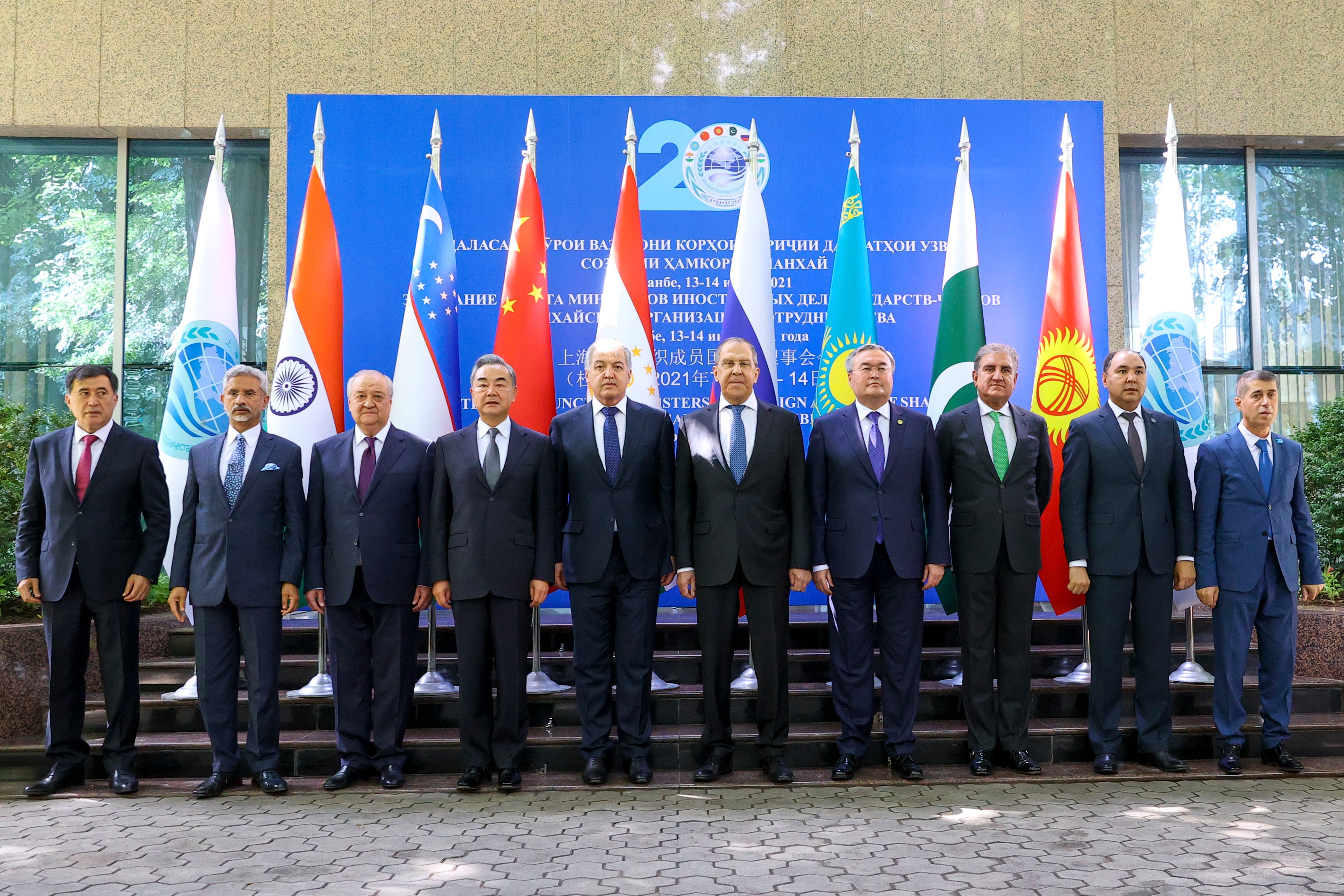Indian, Chinese foreign ministers discuss border standoff
The foreign ministers of India and China have met in Tajikistan, with New Delhi stressing that a military standoff along a mountainous border area is profoundly disturbing their ties, and warning that any unilateral change in the status quo by Beijing is unacceptable

Your support helps us to tell the story
From reproductive rights to climate change to Big Tech, The Independent is on the ground when the story is developing. Whether it's investigating the financials of Elon Musk's pro-Trump PAC or producing our latest documentary, 'The A Word', which shines a light on the American women fighting for reproductive rights, we know how important it is to parse out the facts from the messaging.
At such a critical moment in US history, we need reporters on the ground. Your donation allows us to keep sending journalists to speak to both sides of the story.
The Independent is trusted by Americans across the entire political spectrum. And unlike many other quality news outlets, we choose not to lock Americans out of our reporting and analysis with paywalls. We believe quality journalism should be available to everyone, paid for by those who can afford it.
Your support makes all the difference.The foreign ministers of India and China met in Tajikistan on Wednesday with New Delhi stressing that a military standoff along a mountainous border area was profoundly disturbing their ties, and warning that any unilateral change in the status quo by Beijing was unacceptable.
“Full restoration and maintenance of peace and tranquility in border areas is essential for the development of bilateral ties,” Indian External Affairs Minister S. Jaishankar said in a tweet.
Jaishankar and Chinese Foreign Minister Wang YI met on the sidelines of the Shanghai Cooperation Organization foreign ministers' meeting in Dushanbe, Tajikistan.
There was no immediate Chinese comment on the meeting between the two foreign ministers.
The standoff between India and China has continued for more than a year despite military talks involving local commanders and political meetings between foreign and defense ministers.
Jaishankar said the two sides agreed Wednesday to hold a meeting of senior military commanders.
Last year, 20 Indian troops died in a clash with Chinese soldiers involving clubs, stones and fists in a portion of the disputed border. China said it lost four soldiers.
Both sides have mobilized tens of thousands of soldiers, artillery and fighter aircraft along the fiercely contested border known as the Line of Actual Control that separates Chinese and Indian-held territories from Ladakh in the west to India’s eastern state of Arunachal Pradesh, which China claims in its entirety.
Indian military officials say the Chinese army has stepped up deployment in the contested region, which has been met by a similar move by Indian troops.
Also Wednesday, the Indian army denied a media report that Indian and Chinese soldiers had recently clashed again in Eastern Ladakh.
"Ever since the disengagement agreement in February this year, there has been no attempt by either side to occupy the areas from where the disengagement had been undertaken. There have been no clashes in Galwan or any other area, as reported in the article," the army said in a statement.
India and China fought a war in 1962.
Recalling their last meeting in Moscow in September last year, Jaishankar emphasized the need to follow through on an agreement reached then on disengagement along the Line of Actual Control in Eastern Ladakh.
He said a successful disengagement in the Pangong Lake area earlier this year had created conditions for resolving the remaining issues. "It was expected that the Chinese side would work with us towards this objective. The Indian External Affairs Minister noted however that the situation in the remaining areas is still unresolved,” the Indian side said in a statement.